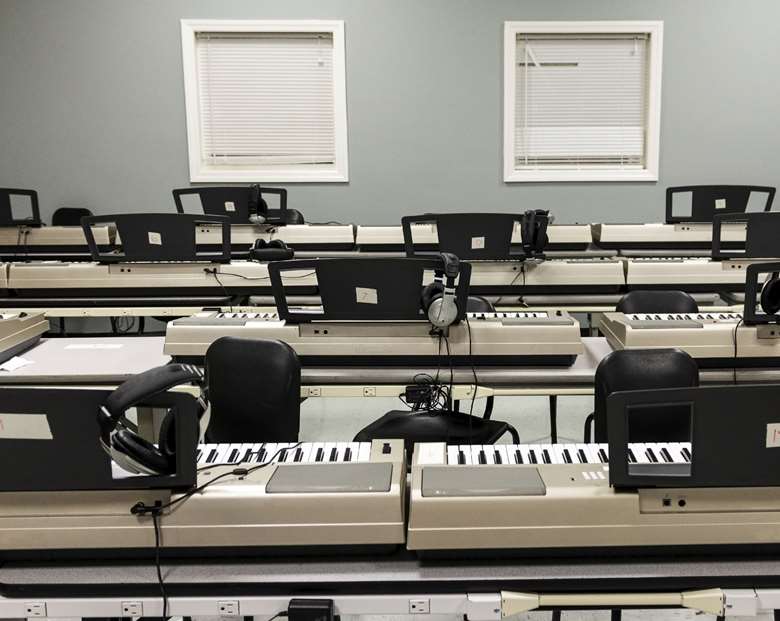Music could be ‘suspended’ amid school staff shortages, suggests Ofqual chair
Hattie Fisk
Tuesday, January 4, 2022
In the ‘case study’ Bauckham grouped music with PSHE and RSHE as subjects from which teachers can be redeployed.

Coachwood/ Adobe Stock
*Article amended with a response from the DfE on 5 January.
Ofqual chair Ian Bauckham has suggested that schools establish ‘emergency timetable changes’ to help with staff shortages caused by the pandemic.
Bauckham states that suspending ‘specialist’ subjects, such as music, PSHE (personal, social, health and economic education), or RSHE (relationships, sex and health education), and moving teachers to other subjects will help with high absence levels predicted this term.
Bauckham, who is also chief executive and director of the Tenax Schools Trust, established his model in a ‘case study’ published on a Department for Education’s (DfE) portal for headteachers, as seen by Tes.
The exam watchdog chair wrote: ‘In cases where a specialist teacher rotates between classes to teach subjects that sometimes include for example… music, it may be possible temporarily to suspend the teaching of that subject and use that teacher to teach classes whose normal teacher is absent and unable to teach remotely.’
ISM chief executive Deborah Annetts said: ‘Music is a National Curriculum subject that has a vital role in our education system. Music brings enjoyment and significant educational benefits to students.
‘While staff shortages in schools are concerning, and schools will be looking for solutions to cope with the current pressures, simply cancelling music lessons and redeploying music teachers cannot be the answer.’
She added: ‘Music and music teachers must be given the respect that they deserve and music should be treated as the statutory subject it is. We will be writing to Ian Bauckham to make these points in detail and stand up for music education.’
Other suggestions from Bauckham include teaching larger-sized classes with a more theoretical focus, to allow schools to prioritise A Level and GCSE students. He establishes that there is ‘no right answer’ and that ‘different school and trust leaders will have different approaches’ that are equally as valid.
A DfE spokesperson told MT: 'Face to face learning for all pupils is a priority, which is why we have put in place a range of measures to help keep young people in the classroom.'
'We’ve also asked schools to have contingency plans to maximise attendance and minimise disruption to learning, should they have high rates of staff absence.'
They continue: 'We are working with the sector to share case studies of flexible learning models in the event of high workforce absence, supporting the development of schools’ contingency plans, and we are grateful for Ian’s contribution.'





